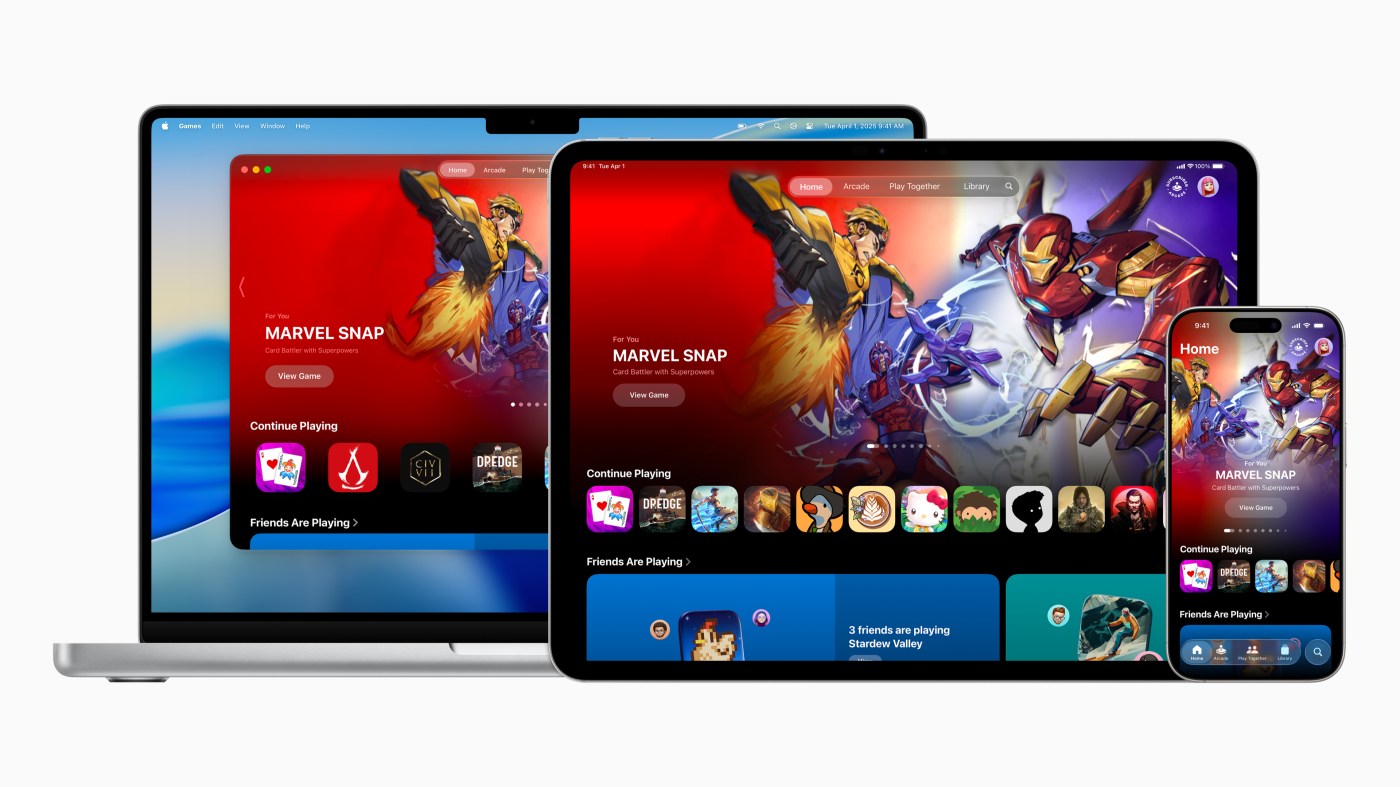
Gaming on Apple devices can be a mess. Titles can pile up on an iPhone, iPad and Mac as players dabble in different titles looking for the right amusement for their snippets of free time. That type of entertainment grazing can make searching for a game difficult, especially if a collection is unorganized.
Related Articles
‘Monster Hunter Now’ announces Expedition Bases and more features
Review: Arctis Nova 3P Wireless is a budget headset with no-frills value
EA announces new “skate” game coming out in Early Access on Sept. 16
Preview: ‘Sonic Racing: CrossWorlds’ offers twist to kart racing
Niantic increasing the ‘Pokemon Go’ trainer level cap to 80 on Oct. 15
That’s where the new Apple Games app comes in. The Cupertino-based company has previewed the new feature coming to iOS 26 in a beta. It acts as an all-in-one hub for gaming across the company’s devices. It gathers what players are enjoying on the iPhone and Mac from different services (including Steam) and puts it in a space, where they can see, and depending on the device, access it.
From what I’ve seen, it’s comparable to what Nvidia does with its GeForce Experience on PC, but Apple Games has a few more tricks up its sleeve.
Players can sort games by controller support in the Apple Games app. (Apple)
WHAT’S INSIDE
The app is split into five tabs: Home, Arcade, Play Together, Library and Search. Some of these are self-explanatory.
Arcade is for games tied to the Apple Arcade service, which is packed with more than 200 games, and the Library shows players all the titles on a device. It can be titles they purchased on the App Store, free-to-start projects like “Marvel Snap” or even Steam games downloaded on a Mac. Apple organizes and tracks these games, going back years. It also shares save data across devices that support the same games.
The Search is a way to find titles by name. It can filter games by genre or even different control schemes.
Play Together is an intriguing option. It shows what games friends are playing, leaderboards, achievements and challenges. The supported genre extends to unexpected ones such as Crosswords or Sudoku in Apple News +. This is where Apple tries to build in more multiplayer components.
Players can compare their achievements in supported projects, but what’s more notable is that players can issue challenges that turn single-player games into more of a multiplayer experience as it creates a quest for a group of friends to tackle for a set time. An example offered was a challenge to attain the highest score in “Fruit Ninja” over a week span.
The Apple Games app shows events and other activites for the games you play. (Apple)
A COMPELLING FEATURE
The Home tab is the most intriguing part to me. It’s the part of Apple Games built for my style of mobile gaming. I spend a lot of time gaming on my phone, but I don’t spread my attention across several titles. I devote myself to three free-to-play titles – “Pokemon Go,” “Monster Hunter Now” and “Marvel Snap” – that run through seasons and grow over time. Players don’t finish these games; instead, they live with them.
Home gives players easy one touch access to those titles, but it also offers them the latest on the events scheduled for each game. Developers have to use the app’s event system so that it knows what’s going on, but if it works as intended, it can simplify my gaming life by giving me one place to figure out what’s going on in each title, so I don’t miss out on that limited edition Pokemon or special deal for a “Marvel Snap”card variant.
So how does this differ from Apple’s effort Game Center? Apple Games works off the technology of Game Center, but it casts a wider net to more forms of gaming across the company’s ecosystem. It’s more comprehensive, but its success will likely depend on developer support for these new features.